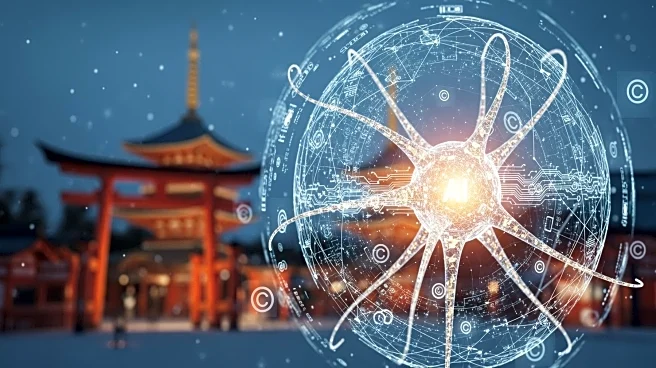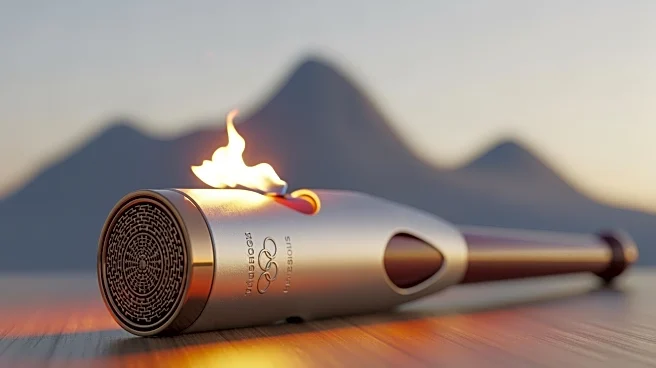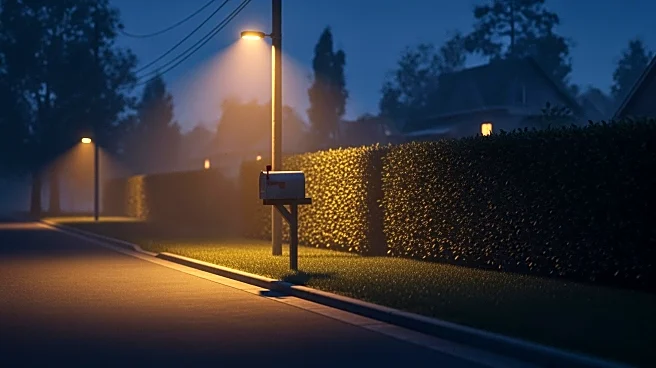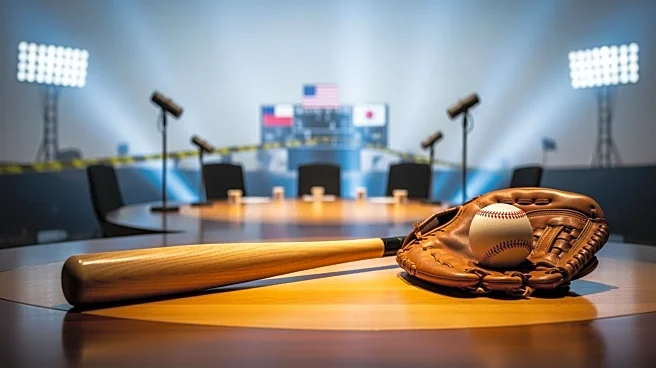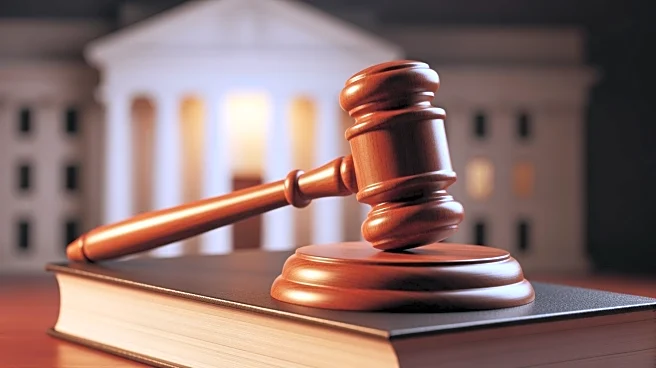What's Happening?
The Japanese government has formally requested OpenAI to avoid infringing on Japanese intellectual property, particularly in response to its video-generating tool, Sora 2. The tool has been used to create
videos featuring copyrighted characters from popular anime and game franchises, raising concerns among Japanese authorities and creatives. The government emphasized the importance of respecting Japanese copyrights and suggested that if OpenAI does not comply, Japan could invoke provisions under the AI Promotion Act to address the issue.
Why It's Important?
Japan's request to OpenAI highlights the growing concerns around AI-generated content and intellectual property rights. As AI technology advances, the potential for copyright infringement increases, posing risks to creators and rights holders. This situation underscores the need for clear regulations and guidelines to manage AI's impact on intellectual property. Japan's stance could influence global discussions on AI and copyright, given its significant contributions to global pop culture through anime, gaming, and music.
What's Next?
OpenAI CEO Sam Altman has acknowledged concerns around Sora 2 and promised greater control for rights holders. However, OpenAI has yet to issue an official response to the Japanese government's request. The controversy may lead to legal actions from major rights holders, as seen with companies like Disney and Universal taking action against AI companies for unauthorized use of their characters. The situation could prompt further discussions on international regulations for AI-generated content.
Beyond the Headlines
The issue of AI and copyright infringement raises ethical questions about the balance between technological innovation and the protection of creative works. It also highlights the need for collaboration between technology companies and governments to establish fair and effective policies that support both innovation and intellectual property rights.
